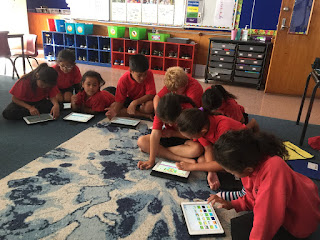This year my inquiry focus has been on reading and trying to accurate reading learning for children who we reading below their chronological age.
I have made a number of changes in my teaching ready for term 4 building in the changes I made earlier in the year.
Towards the end of term 3 I finally had a chance to test the children 1-1 on their sight words. I expected this to be a significant challenge for the learners in my target group but was surprised that for the most part sight word knowledge sat at normal level. They knew sight words up to their current reading level. There were a view gaps that I will not more specifically in a future post.
Given this new information I started asking if its not sight words which I still could be as they need the next set to progress forwards what is it?
We have continued to us the Dr Gwyneth Phillips work around picking up the pace in literacy and I do believe that systematic use of these has supported reading however I still asked what am I missing.
This is when I started thinking more about Phonics. We do phonics in context in our guided reading programs but that doesn't see to be enough. I started looking at the errors children reading between level 3 and 20 were making and so much of it came down to phonological knowledge. For example children were saying single letter sounds not blends, or mixing up vowels in the middle of words.
I have taught for almost 5 years now and have not at this stage implemented a systematic phonics program.
So given what I have found out what next:
Every day in Room 21 we do hand writing in the morning. Now I am going to use the more systematic phonics approach to this. I am drawing on the resources from the site progressive phonics who provide a step by step phonics program for free. I choose this as it allowed me to start at the Intermediate level in which they have a strong focus on blends and use poems, flash cards, games and more to learn blends and words in order.
I still have a lot to do and the year is drawing to a close. perhaps phonics will be the missing piece that helps these kids to start to fly in their reading. I sure hope it is.
I have also started to provide even more milage. Milage is something I know works to build fluency, word knowledge and over all reading ability. In order to do this each day I have had a buddy reading book along side the teacher supported book.
My hope is that this will combat some of the effects of the two lockdowns.


















